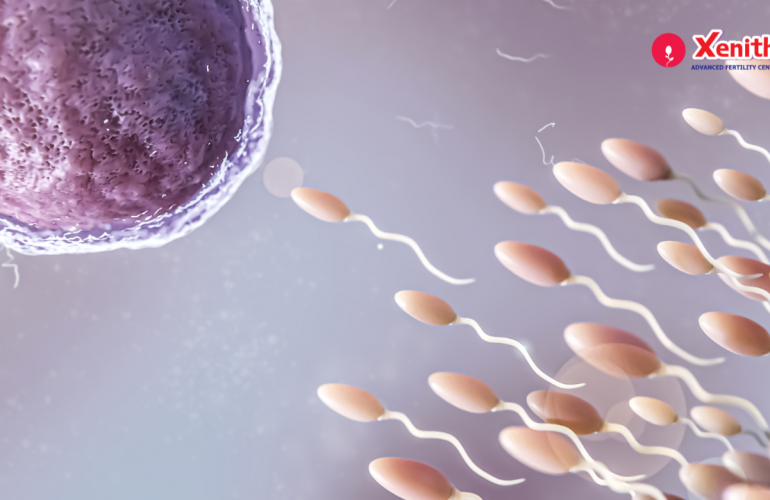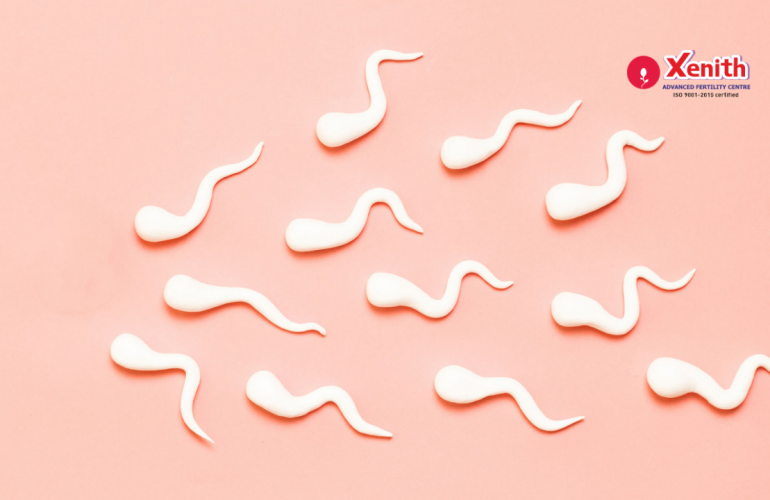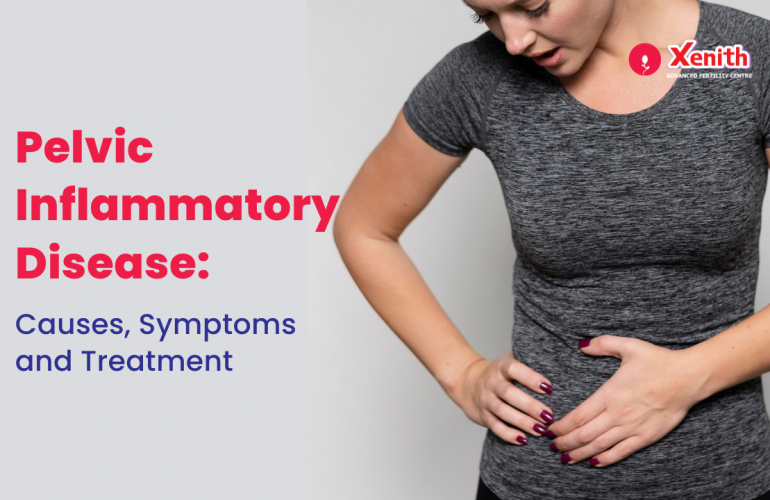Invitro fertilization (IVF) is a procedure where the woman’s ovaries are stimulated with medications so that more than one egg will mature at the same time and once these eggs are mature, they are retrieved, fertilized with sperm in a laboratory setting and the fertilized egg is transferred back into the uterus for implantation which if successful leads to conception and pregnancy. There are a lot of myths surrounding IVF and it’s important to know the facts before making any decisions about it.
Here are some of the myths surrounding IVF:

Free Thursday Consultation
Book Your AppointmentMyth 1- IVF babies are prone to developmental, behavioural or health issues- IVF babies undergo similar risks as babies conceived naturally and there is no difference in comparison to babies born by natural means. The minimal increase in risk is at times associated with underlying factors related to pregnancy, rather than the procedure itself. Through IVF, genetic testing and screening could be carried out on the fertilized egg before implantation and the likelihood of passing on any genetic disorders to the baby decreases with IVF as compared to naturally conceived children. So, IVF can greatly help couples who have a family history of genetic disorders or older couples who have higher chances of having certain disorders and IVF could then help them to have healthy babies. With IVF, there could be higher incidences of multiple births because sometimes more than one embryo is transferred to the uterus for implantation and if all of them implant in the uterus, the risk of multiple births increases along with risk of low birth weight, and being born prematurely. It also gives some couples who are struggling with infertility, the chance to become parents to healthy children.
Myth 2- IVF is guaranteed to succeed on first try- IVF treatment success rates depend on various factors like age, underlying health conditions, quality of the egg, sperm and embryo, uterus receptivity, number of embryos transferred at one time, cause of infertility, expertise of embryologist and the clinic success rates. With the latest technology and techniques, the success rates are steadily increasing. Although, nothing is 100% foolproof. Sometimes, you might need to attempt a few IVF cycles before becoming pregnant.
Myth 3- IVF is a painful procedure and is unsafe- Going through IVF is not so painful. It does involve getting hormonal injections at set times and getting blood tests and going for ultrasounds. However you might just experience some discomfort. The procedure of egg retrieval is done under anesthesia and is done within a few minutes and is very safe. Some women might experience some bloating or mild cramping after the egg retrieval. Very rarely, ovarian hyperstimulation syndrome (OHSS) might occur due to excessive hormones and it could cause the ovaries to swell and be painful.
Myth 4- IVF is for older women- IVF is recommended for any woman who is experiencing infertility and have failed to conceive using other assisted reproductive technologies like using medications to stimulate ovulation and/or intrauterine insemination (IUI) where washed sperm is injected into the woman’s uterus during ovulation. Often, older women are struggling with infertility due to poor quality eggs and low egg count and so they are often recommended to go through IVF. But some younger women might be dealing with infertility due to various reasons like endometriosis, certain health conditions, or hormonal issues amongst other things. They might thus need to undergo IVF in order to conceive. Younger women do, however, stand a higher chance of success due to healthier eggs and better health.
Myth 5- IVF can be very stressful and emotionally draining- going through IVF for the first time with many unknown procedures could lead to anxiety and it is useful to ask all your questions to your doctor. The experts at Xenith Advanced Fertility Centre can explain any questions you might have about IVF and can go through each procedure step by step in very simple language so that you thoroughly understand what IVF entails. Going through infertility itself could be very emotionally draining and the centre offers counselling if you feel it’s needed. In fact many of our patients say that it was such a smooth process that they didn’t feel any impact. Knowing beforehand what you are getting into could help alleviate any stresses you might feel.
Myth 6- IVF depletes a woman’s egg supply- normally during ovulation usually only the egg becomes mature and is released for ovulation. However, many eggs begin the journey to maturity and only one gets fully matured. The other eggs then disintegrate when they are not used. In IVF, the medications are given to mature all the eggs at the same time so that all of them could be retrieved for fertilization. So, IVF does not deplete a woman’s egg supply and just makes full use of the eggs that would otherwise disintegrate normally.It’s important to understand what IVF procedure entails and separate fact from fiction. IVF is a very effective tool for people struggling with infertility and it’s also very safe. The chance of success can vary from each individual depending on various circumstances. Be aware that not every IVF procedure will be successful and learn from your past experiences and become resilient towards your future whatever it may bring. So, become well informed, get accurate information and guidance from the experts at Xenith Advanced Fertility Centre, weigh out your risks and benefits and find out if IVF would work for you in your particular circumstances.




